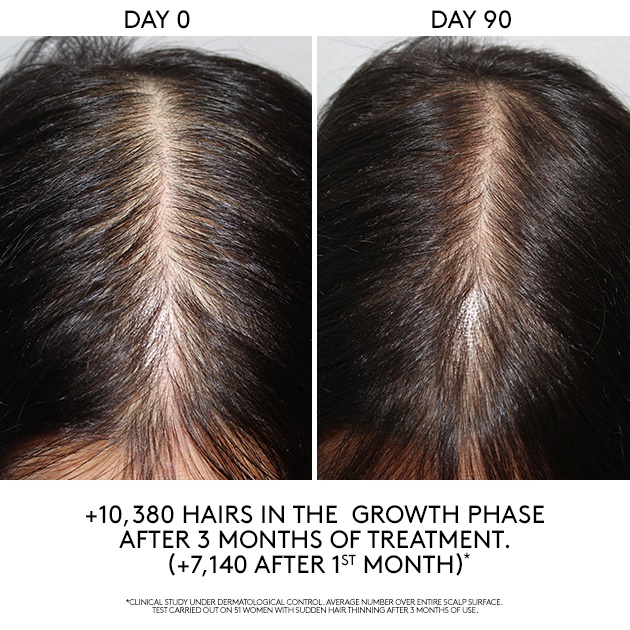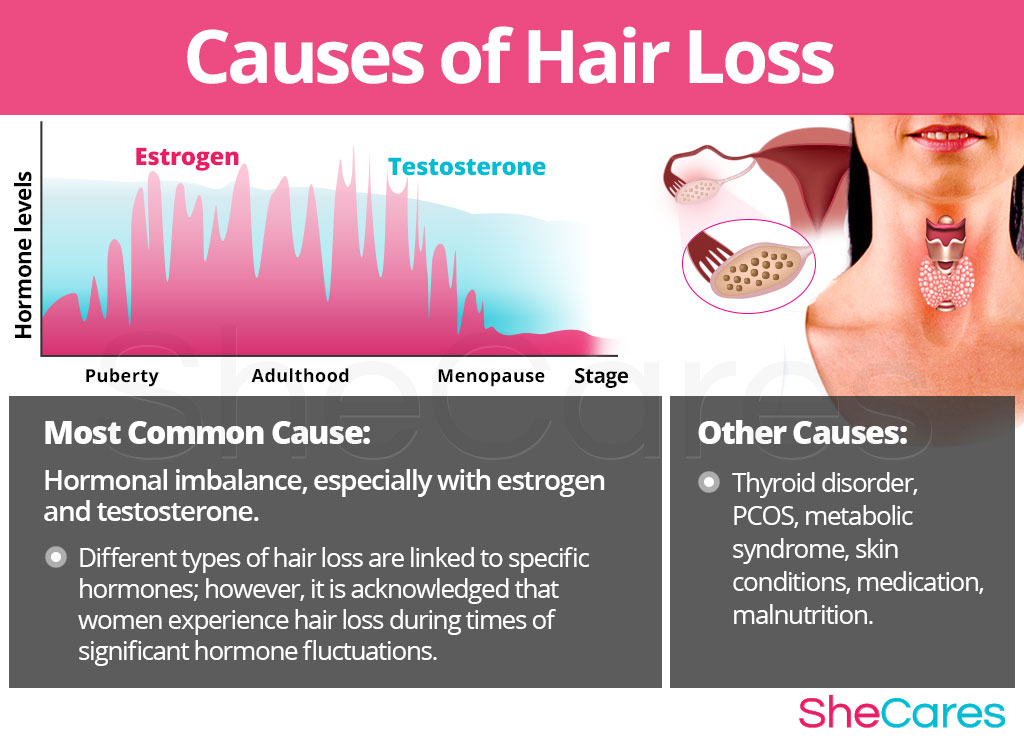Table Of Content

Other forms of birth control that affect the hormones, such as implants and skin patches, may also cause hair loss. If a person thinks that hair loss may be due to a medication, they can consult a doctor for an assessment. The doctor might reduce the dosage or switch the person to a different medication.
Find more top doctors on
In one small 2016 study involving 9 people, participants saw results after receiving as little as 4 minutes of massage a day for 24 weeks. Other essential oils to consider include lavender, lemongrass, and peppermint. You can try mixing a couple drops of any or all of these oils with a couple tablespoons of a carrier oil such as jojoba or grapeseed. However, you may need to use the medication for as long as 12 months before you’ll see any results.
Harvard Health Ad Watch: New drug, old song, clever tagline
While hair loss isn’t itself dangerous, losing your hair is an emotional experience. Unwanted changes to your appearance can influence your self-esteem and social life. Some people find comfort in talking with a mental health professional if their hair loss causes discomfort. Others may find relief in changing their hairstyle or wearing a wig. Shrinking can begin as early as your teens, but it usually starts later in life. A dermatologist is a medical doctor who specializes in treating the skin, hair, and nails.
How Stress Can Affect Hair Loss And What To Do About It
And early treatment of alopecia may reduce the speed of thinning and promote regrowth. A healthcare provider can tell you more about what to expect in your situation. The most common cause of female hair loss worldwide is female pattern baldness, which is also called androgenetic alopecia . This type of hair loss has a strong genetic component and can be inherited from either your mother or father.

About Mayo Clinic
However, studies show that more than 50% of people assigned female at birth will experience noticeable hair loss. The most significant cause of hair loss in women is female-pattern hair loss (FPHL). This affects about 30 million people in the United States.
Types of Hair Loss

Dozens of over-the-counter supplements and products purport to reverse hair loss, making it tough for patients to know which ones work and which don’t. “As soon as you notice hair loss is happening, you should come in,” says Lauren Eckert Ploch, a dermatologist in Aiken, South Carolina. While alopecia doesn’t typically affect your physical health, the emotional and psychological distress it can cause are very real.
How Is Female Hair Loss Treated?
Male and female pattern baldness are the main cause of hair loss. However, lifestyle factors, such as frequent tight hairstyles, and medical conditions, such as alopecia, can also cause hair loss. This is the name for hair loss caused by medications that harm your hair follicles. Radiation and chemotherapy treatments for cancer can be toxic to follicles, causing your hair to fall out within the first few weeks after you start treatment. Hair regrowth usually begins within a few months after you finish treatment.
Prescription oral medications
If you need treatment for regrowth, the earlier you start, the more likely you are to see regrowth. Studies indicate that laser therapy is safe and painless but requires many treatment sessions. To see a bit of hair growth, you may need several treatments a week for many months.
Some hairstyles and hair care habits can damage hair, leading to hair loss. If your dermatologist finds that this may be causing your hair loss, your dermatologist can recommend changes that will help you stop damaging your hair. Women with hair loss due to alopecia areata may consider treatment with corticosteroids applied to the scalp or injected into multiple sites in the affected area.
Hair Thinning Causes In Women - Women's Health
Hair Thinning Causes In Women.
Posted: Fri, 08 Mar 2024 08:00:00 GMT [source]
As a result, hair doesn’t grow as long or thick as it normally would. This article will focus primarily on hair loss in cis women. The information in this article will also apply to you if you were assigned female at birth and have never had hormone replacement therapy (HRT). Trans women and trans men who have used HRT may have additional risk factors for hair loss that are not covered here.
Hormonal imbalances related to polycystic ovary syndrome (PCOS) and birth control can lead to hair loss. PCOS hair loss is caused by the ovaries overproducing extremely high levels of androgens, causing hair loss on the temples and front of the scalp. Conversely, this hormone change may also cause excessive hair growth on the face and chest. People with PCOS hair loss typically take the oral medication spironolactone to help regrowth. Hormonal birth control may also be prescribed to help lower testosterone levels causing hair loss. Hair loss, known clinically as alopecia, thins hair in some, changes the hairline in others, and can lead to partial or total baldness.
No comments:
Post a Comment